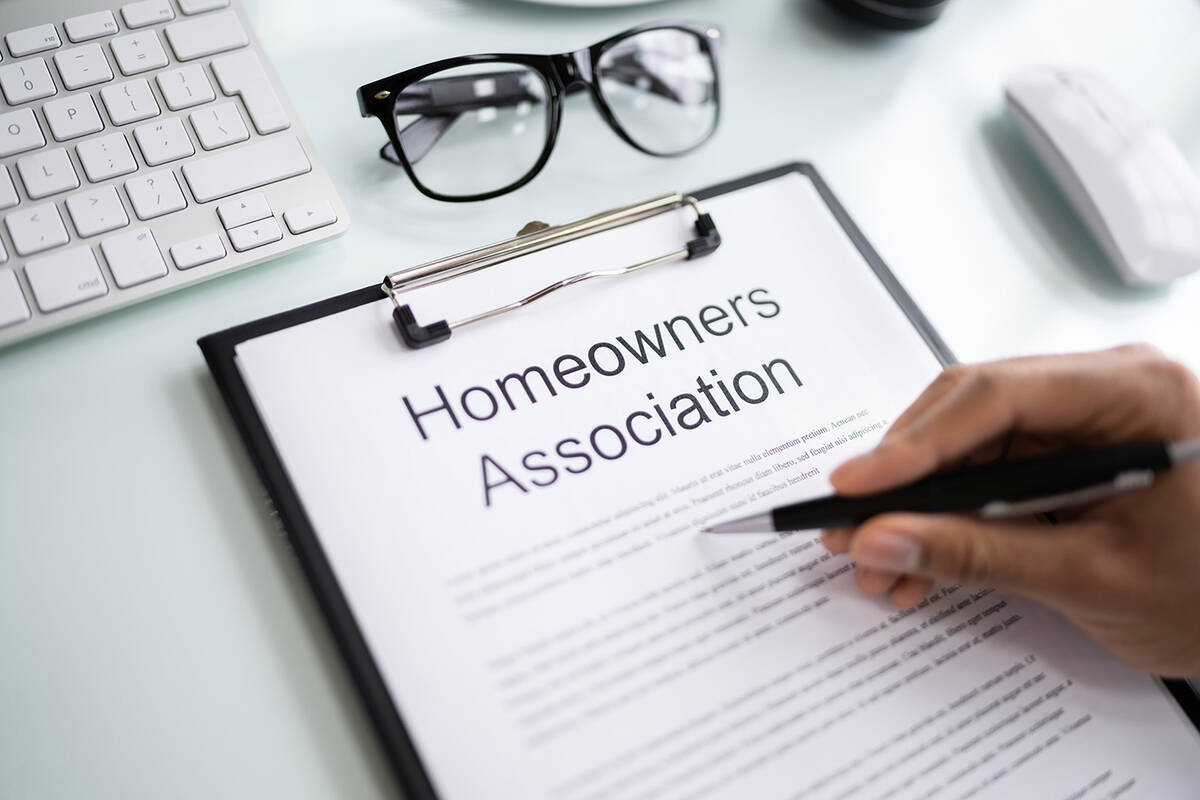Condo owner says others not paying their fair share
Q: (My) condo complex has 440 units. Currently, 20 percent of homeowners do not pay their homeowners association fees. This has been going on for years. Foreclosure has only now been implemented on two units. (There are) 69 homeowners in this community who don’t pay their fees. Again, only two of those are facing foreclosure. My fees keep going up. A special assessment was charged and the rest of us will seemingly continue to subsidize the ones who don’t pay. My suspicion is that someone is getting paid off. How else can this happen for years and in some cases decades! I would like to know my options. I was told that eventually those people will die but that somehow is not satisfactory. Thanks for your cooperation in this matter. I await your reply.
A: You need to address this issue with both your community manager and board of directors. If you cannot obtain a satisfactory answer then you should contact the Nevada Real Estate Division and file a formal complaint. With the complaint, you will need to submit documentation to show that your board is not exercising reasonable care for your association by not collecting assessments.
Q: I sit on the board of directors in our community. The board has authorized a fine for a person in our community who continually allows his dog to roam free unleased throughout the night and day. He has been captured on camera many times roaming and making his mess in the neighborhood for months now. I don’t know if there is any other recourse the board can take on this matter. When I ask the HOA their answer is just keep imposing fines on him.
I am asking is there anything else that can be done? We also had another person claim that if his dog can roam free so can his dog. Your help is greatly appreciated.
A: You will need to contact Animal Control as it is not legal to have unleashed pets in public. They can be reached at 702-455-7710. You will need the residents who actually saw or filmed the dog to be the party to file the complaint. They will not accept third-party complaints.
Q: I live in a community and we have seen an increase of prowlers and break-ins here in the past few years. As a result, the head of our security has suggested we all have house alarms that are connected with security at our guard gates and security lights.
As a result, many of us installed motion-activated security lights. Now, we are receiving letters from our HOA telling us to “remove” those security lights as they are not approved by our Architectural Review Committee.
I get it if security lights are shining into my neighbor’s bedroom etc. and then being asked to redirect where they shine. But, to remove them completely?
Do I not have the right to protect my property and my family as was suggested by the head of our security? Please advise and thank you for your always informative column.
A: There have been court cases where associations were successfully sued as a result of personal injury cases where homeowners were attacked after being forced to make changes to their security system, including their lights.
If the issue with your association is that the lighting was not approved by the ARC, your first step is to complete the architectural application to the committee for approval.
If the ARC committee denies the application, you would then appeal the decision to the board.
You also have the right to request the Nevada Real Estate Division to become involved and request intervention or mediation.
Barbara Holland, CPM, is an author, educator and expert witness on real estate issues pertaining to management and brokerage. Questions may be sent to holland744o@gmail.com.




















